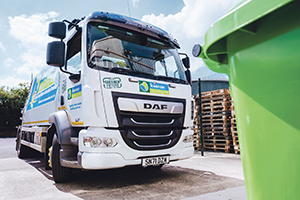The average UK business is spending over £50,000 every year on sending food waste to landfill, however, recycling food waste could save care homes up to £7,000 a year, according to new research from Keenan Recycling.
 Despite this, only a third (36%) of care homes say that they recycle food waste in order to minimise financial losses and only a third (34%) recycle food waste to avoid costly fines.
Despite this, only a third (36%) of care homes say that they recycle food waste in order to minimise financial losses and only a third (34%) recycle food waste to avoid costly fines.
However, new legislation due to land in 2024, is expected to mandate that any business producing over 5kg of food waste will need to separate and recycle its waste through a registered food waste carrier service.
Failure to comply could put care homes at risk of potentially hefty financial penalties-with fixed penalty notices starting from £300.
The legislation is due to be introduced by both DEFRA and the Welsh Government, who are expected to enact the provisions of the Environment Act 2021, and thereby make the separation of food waste from other waste streams a requirement.
However, while the research suggests that care homes are not aware of the potential costs that sending food waste to landfill could incur, it did reveal that care homes are conscious of the indirect financial implications.
Almost half (44%) said they recycle food waste as a response to public sentiment and consumer demand and a further third (32%) of respondents cited that recycling food waste helps them adhere to hygiene standards.
Grant Keenan, Managing Director at Keenan Recycling, said, “We know our care homes want to implement more sustainable methods of working, but they are facing a lot of pressure right now and there are many misconceptions around the true cost of food waste recycling.”
“Our roundtable with key industry experts, including representatives from the care sector, highlighted this. Businesses revealed that they are worried about the upfront costs involved in introducing new processes such as investing in new bins, onboarding new food waste providers and providing training for staff.”
“But actually, short term investment in proper food waste management systems will bring financial benefits in the mid to long term. In fact, care homes could see themselves saving thousands each year. On top of this, by looking at how to implement new processes now, businesses can ensure that there is time to support staff through the change and iron out any teething problems ahead of the incoming laws.”
For more insights from the research and findings from Keenan’s roundtable, please visit: https://keenanrecycling.co.uk/the-ideal-picture-of-food-waste
Please contact
T 0800 644 6618
www.keenanrecycling.co.uk

